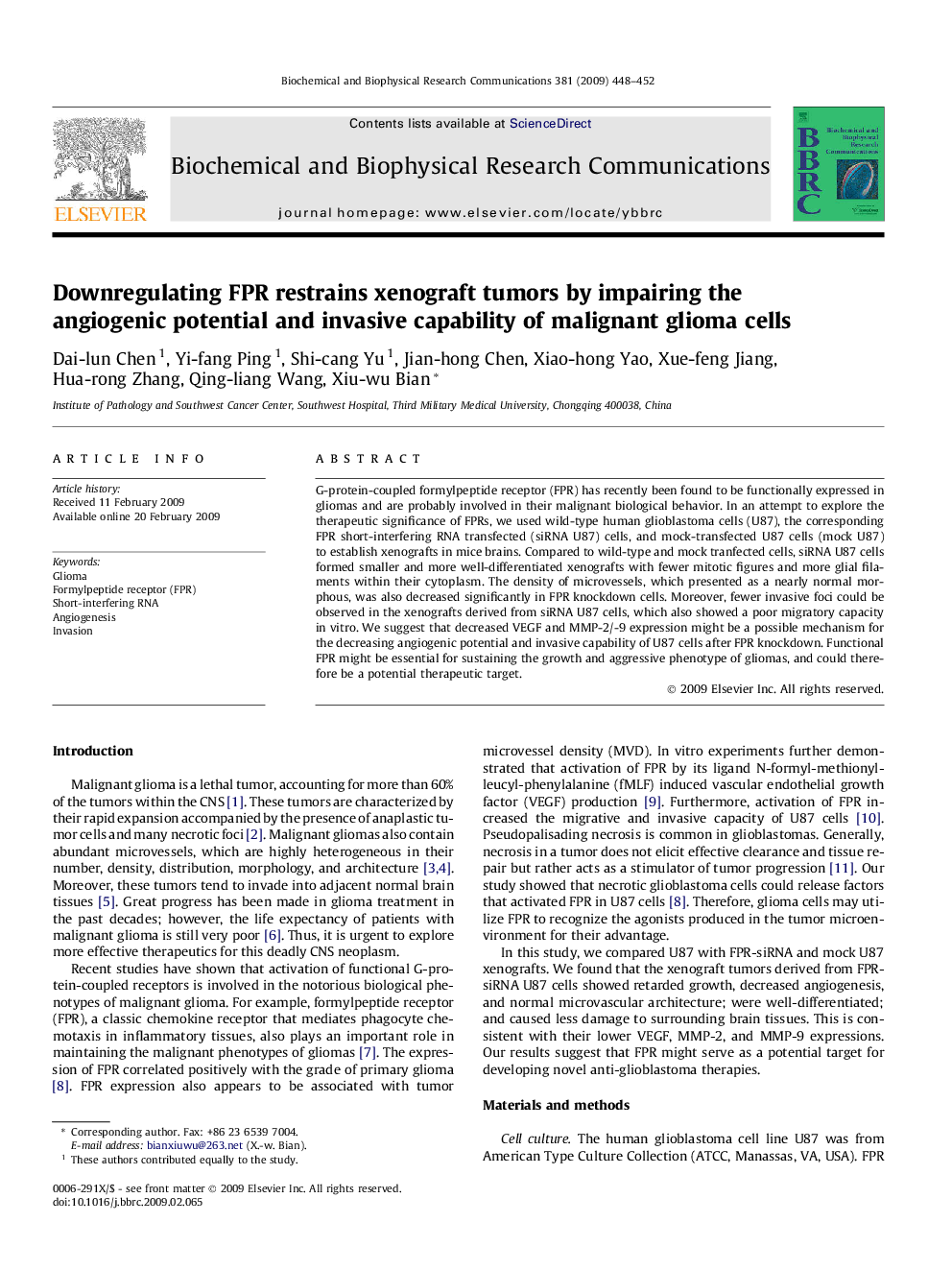| کد مقاله | کد نشریه | سال انتشار | مقاله انگلیسی | نسخه تمام متن |
|---|---|---|---|---|
| 1933477 | 1050614 | 2009 | 5 صفحه PDF | دانلود رایگان |

G-protein-coupled formylpeptide receptor (FPR) has recently been found to be functionally expressed in gliomas and are probably involved in their malignant biological behavior. In an attempt to explore the therapeutic significance of FPRs, we used wild-type human glioblastoma cells (U87), the corresponding FPR short-interfering RNA transfected (siRNA U87) cells, and mock-transfected U87 cells (mock U87) to establish xenografts in mice brains. Compared to wild-type and mock tranfected cells, siRNA U87 cells formed smaller and more well-differentiated xenografts with fewer mitotic figures and more glial filaments within their cytoplasm. The density of microvessels, which presented as a nearly normal morphous, was also decreased significantly in FPR knockdown cells. Moreover, fewer invasive foci could be observed in the xenografts derived from siRNA U87 cells, which also showed a poor migratory capacity in vitro. We suggest that decreased VEGF and MMP-2/-9 expression might be a possible mechanism for the decreasing angiogenic potential and invasive capability of U87 cells after FPR knockdown. Functional FPR might be essential for sustaining the growth and aggressive phenotype of gliomas, and could therefore be a potential therapeutic target.
Journal: Biochemical and Biophysical Research Communications - Volume 381, Issue 3, 10 April 2009, Pages 448–452